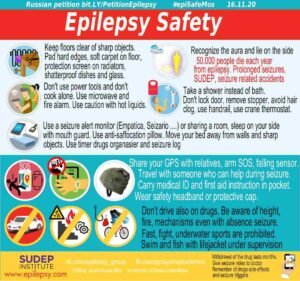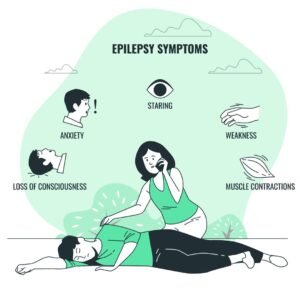In India, epilepsy is a neurological illness that affects about one in every 100 people and is characterised by repeated seizures. Abrupt changes in behaviour resulting from transient disturbances in the electrical activity of the brain are known as seizures. Normally, the brain produces coherent electrical impulses that are carried by neurotransmitters to every part of the body. This pattern, however, becomes unbalanced in epilepsy, resulting in recurrent convulsions that impair sensations, movements, or consciousness.

The Burden of Epilepsy Among Women in India
Epilepsy is becoming more common in India, although many instances go untreated, especially in women. Even with the progress in medicine, there is still a great need for more awareness, particularly among young women, about early detection and treatment. Social stigma, cultural beliefs, and a lacklustre healthcare system all play a part in the undertreatment of epileptic women.
Unique Considerations for Women: Pregnancy and Reproductive Health
Professor of Neurology and epileptologist Dr. Siby Gopinath highlights the substantial therapeutic gap in the management of epilepsy, particularly in rural areas. Pregnant women of reproductive age confront particular difficulties, such as the teratogenic effects of antiepileptic medicines (AEDs) and higher rates of infertility, which call for extra consideration and care.

Understanding the many causes of the issue in women, such as structural brain abnormalities and metabolic disorders, is essential for making an accurate diagnosis. The disease load among women is largely attributed to neuroinfections, head trauma, and metabolic disorders, which emphasises the significance of thorough neurological examinations and sophisticated neuroimaging tests for precise diagnosis.
Treatment Options
Reducing the prevalence of epilepsy in women and children requires preventive interventions such as better maternity care, addressing modifiable risk factors, and preventing falls and injuries. In order to allow women with epilepsy to have normal lives, Dr. AK Sahani, Director and Chief of Neurology at the Indian Spinal Injuries Centre (ISIC) in New Delhi, stresses the significance of prompt treatment. Pregnancy managed under a neurologist’s care enables safer drug substitutions and smaller dosages of medication, protecting the mother’s and the unborn child’s health.

Pharmacotherapy, surgery, brain-stimulating treatments, and dietary changes including ketogenic diets are among the epilepsy treatment possibilities. In general, boosting healthcare access, eliminating societal stigma, and increasing awareness are crucial for controlling epilepsy, especially for Indian women.











Comments 1